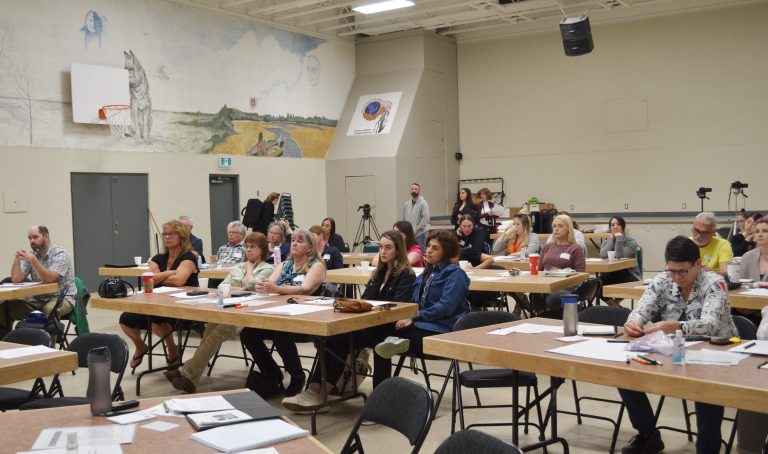
A research team looking to revamp the current method for determining the amount of people experiencing homelessness in Canada hosted a community forum in Prince Albert on Thursday, over a year since their first visit to the city in March of 2022.
Thursday’s forum provided an opportunity for community members to come together and discuss issues surrounding homelessness in the Prince Albert area and provide targeted feedback on the findings to date collected from the Homelessness Counts study.
According to Assistant Scientific Director at Lawson Health Research Institute Cheryl Forchuk, current numbers say there are around 230,000 homeless people in Canada over the course of one year, which is the number that government funding for supports and services is based on.
Forchuk said in reality, she believes there is much more than that.
The research team made up of Forchuk, Richard Booth and Sara Husni travelled to 28 different communities across Canada, both urban and rural, that face challenges with homelessness. They visited shelters and organizations to meet with service providers and those with lived experience.
Since January 2021, the team has held focus groups with 190 agencies and interviewed more than 400 people experiencing homelessness to get a better understanding of who they are, what barriers they’re facing, and what services are needed in their communities.
“The homeless population is incredibly diverse,” said Forchuk. “This is really important because we need to understand who is homeless so we can have appropriate services.”
She noted that during the COVID-19 pandemic, they saw a rise in not only the diversity of those struggling with homelessness, but the number of people facing homelessness for the first time.
“We found more young people that were homeless than we’ve seen previously, including [more] people with neurodiversity. Kids with autism for example,” explained Forchuk. “Developmental handicaps that the homeless sector is really not prepared to offer appropriate services.”
The number of homeless people in Canada is determined through the access of services, and what the research team found was that people struggling with homelessness in rural and remote communities were being left out of the count due to the lack of a homeless sector in their area.
“The current system for counting homelessness across the country focuses on large urban centres,” said Forchuk. “There’re only 68 communities in the entire country that send data up to those federal estimates.”
The Homelessness Counts project proposes a method to count the amount of people facing homelessness more accurately, accessibly, and more cost-efficiently, using provincial health data.
“We found that looking at health data, rather than homeless data, we could perhaps triple the rate of the homeless estimates,” she noted.
The federal government provided the funds to make the Homelessness Counts research project come to life through the Public Health Agency of Canada and the Reaching Home program.
It’s Forchuk’s hope that with their continued support, housing will soon be viewed as a human right in Canada.
